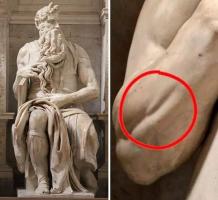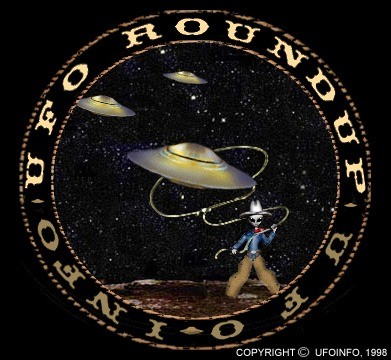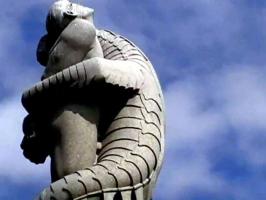Copy Link
Add to Bookmark
Report
Carolina (English) No 001

*-*-*-*-*-*-*-*-*-*-*-*-*-*-*-*-*-*-*-*-*-*-*-*-*-*-*-*-*-*-*-*-*-*
CCCC AA RRRRRR OOOOO LL II NN N AA
CC C AA A RR R OO O LL II NNN N AA A
CC AA A RR R OO O LL II NN N N AA A
CC AAAAAAA RRRRRR OO O LL II NN N N AAAAAAA
CC C AA A RR R OO O LL II NN NN AA A
CCCC AA A RR R OOOOO LLLLLLL II NN N AA A
STUDENT'S E-MAIL NEWS FROM CZECHOSLOVAKIA
Fakulty of Social Science of Charles University
Smetanovo nabr. 6,
110 01 Praha 1
CSFR
e-mail: FSVUKA@CSEARN.BITNET
*-*-*-*-*-*-*-*-*-*-*-*-*-*-*-*-*-*-*-*-*-*-*-*-*-*-*-*-*-*-*-*-*-*
C A R O L I N A No 1, 1991
Events of last week (from Oct. 24 to 31)
What actually happened?
About the incident which took place during the celebration of
the founding of the Czechoslovak republic (Bratislava 28. 10.)
"A game not only of tears," "The presidentøs appeal fails" "A
shame-ful end to the celebration", "An embarassing full stop on
the SNP Square," "Rotter eggs vs. applaus". These were some of
the headlines seen in the Czechoslovak press which reproverd on
the Monday meeting in Bratislava to commemorate the 73rd
anniversary of the founding of the Czechoslovak republic. What
actually happened?
The meeting was organized, along with other political parties,
by the ODU-VPN (Civic Democratic Union-Public Against Violence
party). ODU-VPN won the parliamentary elections a year and a
half ago but is unpopular in Slovakia today for its
pro-federalist platform. People who came to the square were
divided into two camps.: advocates of a unified state and
supporters of an independent Slovakia. Even the first few
sperches were interrupted by land yelling and argering and eggs
being thrown at the speakers especially from the rows of
disgruntled Slovak nationalists.
Into this stormy atmosphere arrived president Vaclav Havel, who
flew to Bratislava directly from the U. S. A. and climbed the
tribune along with other prominent personalities of our
political world. He appealed to the crowd to respectfully
commemorate all those who gave their lives for the freedom of
our nations. The supports of an independent Slovakia answered
with whistles, cat calls and more eggs. Vaclav Havel left the
rally and the meeting was brought to an abrupt end.
What was the reaction of politicians?
President V. Havel: "They didn't hit me. I'm hard to hit."
The Prime Minister of Czechoslovakia, Calfa: "An investigative
committee should be formed which would find out how such a
situation could have developed. This was not an expression of
disagreement with a particular political situation but simple
hooliganism."
The chairman of the Slovak Parliament, F. Miklosko: "What
happened on SNP Square is an act which I condemn and from which
I choose distance myself."
Vice-chairman of the federal government P. Rychetsky: "It is
not necessary to dramatize what happened at the Bratislava
meeting in any way. In every democracy it is normal that
nations are not single minded."
It is interesting to observe the different interpretations of
this event in individual newspapers. Lidove Noviny inform us
that advocates of a unified state were in a minority and
divided by iron fars. Mlada Fronta Dnes, on the contrary,
clains that "most participants were shocked by the aggressive
behaviour of a small group throwing eggs". It is a pity that
one cannot buy Slovak newspaper in Prague. The reader would
hardly recognize that they are reporting on the same event. The
Bratislava section of CTK (Czechoslovak Press Agency) even
stated, that a debate exists about who caused the unrest,
supporters of the federation to discredit the Slovak national
movement?
Again the flanne can be passed on to someone else: the
federalists, Prague. At the same time, I believe, it is not
possible to ascribe extreme nationalism asa characteristic
which is true to the whole Slovak nation and draw conclusions
from that on the question of Czech and Slovak co-existence.
Were that the case we would only be aiding the cause of the
extremists from SNP Square.
---------------------------------------------------------------
For Supporting Democracy and Human Rights
Vaclav Havel awarded the new highest Czechoslovak order "The
Order of Tomas Garrig Masaryk" for the first time during the
73rd anniversary of the founding of Czechoslovakia. From 103
personalities of local political, cultural and public life who
all carried out extraordinary acts in support of democracy and
human rights the following were chosen post-mortum: Jan Palach
(1948 - 1969), a student of philosophy and Jan Zajic (1950 -
1969), a college student, who immulated themselves in protest
of normalization after August 1968, Jan Patocka (1907 - 1977) a
philosopher, historian, initiator and first speaker for Charter
77, Josef Capek (1886 - 1948), artist and writer, Jan Masaryk
(1886 - 1948), diplomat,minister of foreign affairs until 1948,
Jaroslav Seifert (1901 - 1986), poet, Nobel price laureate for
literature.
Among the living laureates let's remember conductor and
composer Rafael Jeronym Kubelik, (1914) and Frantisek Tomasek
(1899) the archbiskop of Prague between 1977 - 1991.
---------------------------------------------------------------
Quo Vadis, Exhibit?
And one more time about October 28th. The evening of the 28th,
fireworks ended the General Czechoslovak Exhibit (EXPO) 1991 in
Prague (it was the third, the previous two having taken place
in 1791 and 1891). The exhibit, whose motto was "The World in
Which We Want to Live", lasted 166 days and was seen by close
to 3 million visitors (same as 100 years ago). The quality of
the exhibit was described ambiguously. In our opinion the
exhibit failed to show the best of what was created in this
country in the last 100 years. The situation is appropriately
described by the General Secretary of the exhibit Mr. Radim
Menç¡k, who summed up the history of the exhibit in 3 parts:
1. Initial euphoria
2. Actual realization of the exhibit
3. Rewarding the absent, punishingh the innocent (the last
phase started Tuesday, October 29th).
It is being assumed that the profit from the exhibit will cover
its running cots.
Exhibit, we say you goodbye till 2091?
---------------------------------------------------------------
C U L T U R A L S E R V I C E
The Theatre Behind the Gate (Divadlo za Branou)
Dialogy Karmelitek premiered in the Prague Theatre za Branou on
October 24th. It was the second premiere in 18 years of this
revitalized theatre.
The theatre was originally founded in 1965 by director Otomar
Krejca and dramaturg Karel Kraus, the dramatist Josef Topol and
the actors Marie Tomasova and Jan Triska.
O.Krejca became art director of the National Theatre in 1956.
In 1961 he resigned but he remained a member of the theatre.
The conditions in the National Theatre did not correspond with
his vision and he asked for his own theatre space. His request
did not go unheard and a new Prague theatre was opened to the
public on November 23rd, 1965.
As a consequence of the 1968 Soviet occupation of Czechoslo-
vakia the theatre was scratched from the list of the State
Theatre Studio in 1969 and completely shut down in 1972. O.
Krejca was not allowed to work for a year and a half and then
he was assigned to the Prague theatre in Liben. His name,
however, could not be used publically. Later he was allowed to
act as theatre director abroad for 2 years, under the condition
that he not work in Czechoslovakia. Two years turned into 16
years. In 1990 the new minister of culture rehabilitated the
ensemble and set up Divadlo za Branou II. Krejca, 18 years
older,selected A. P. Cechov's Sour Cherries Orchard as the
first play for the new theatre. He had directed this play 4
times during his career (Dusseldorf 1976, Stockholm 1988,
Wastaras 1988, Berlin 1987). His fifth fime directing the play
was received by the public with great ambiguity. It could be
considered as the continuation of the tradition of the original
theatre which identified with Cechov who came closest to the
theatre's philosophy with his view of the fundamental questions
of human existence and his style of artistic expression. At the
same time there is the feeling that O. Krejca lacked the
strength to do anything new and so he walked a familiar path.
The theatre critics did not celebrate the production either.
"Krejca's production a disappointment" (Jiri Tvrznik)
"Perfection of the stage concept turns upon itself" (Eva
Roleckov ). "Maybe a bit of acting excellence which would make
them stand out in the world of drama or did I just miss Kreja
the way he was 20 years ago?" Jindrich Cerny asks himself. Not
even a television documentary about the Theatre Za Branou had
anything positive to say about Krejca. The next of Krejca's
productions, Samuel Becket's Waiting for Godot was no longer
directed by Krejca. (Avignon 1978)
Maybe it is an attempt to introduce the Czech audiences to a
play by a world renown representative of absurd drama, who was
banned in this country for a long time.
Or the golden middle way? To ignore that even in Czechoslovakia
it is Beckett's best known play and in the name of compassion
make it possible for a dying star of the theatre scene to
direct it?
Seen through the eyes of the young generation of theatre
professionals which should take care of it in the name of
Krejca's precious ideas for the theatre. They should do this at
soon as possible before the dying star lets out his last
flicker.
---------------------------------------------------------------
The private publishing house for sociology SLON in Prague has
published a very interesting book by Ivo Mozny: "Why So Easy"
with the subtitle "Some Family Reasons For the Velvet
Revolution". The book shows in what ways the communist regime
was convenient for almost everybody, why people tolerated it
for so long and why many will miss it. The author is a
sociologist, he studies family relations and from that point of
view speaks many unflattering (unpleasant) truths about life in
Czechoslovakia.
*-*-*-*-*-*-*-*-*-*-*-*-*-*-*-*-*-*-*-*-*-*-*-*-*-*-*-*-*-*-*-*-*-*
To subscribe Carolina send the e-mail message with subject text
"Subscription" on our e-mail address.
The subscription is free. Comments and remarks are appreciated.
















